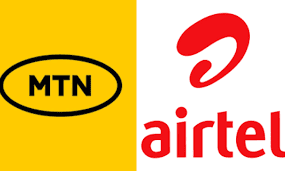MTN Nigeria has launched a Tier III data centre it claims is the largest in West Africa, with ambitions to rival tech giants like Amazon and Google. Officially unveiled on 1 July 2025 in Lagos, the new Sifiso Dabengwa Data Centre is named after the company’s former CEO and is already shaking up the continent’s tech infrastructure narrative.
Phase one of the centre delivers 4.5 megawatts of capacity. The second phase will be rolled out based on demand, according to Yahaya Ibrahim, MTN Nigeria’s Chief Technical Officer. The entire project is valued at $235 million, with $20 million dedicated to its cloud services alone.
Built for Scale, Geared for AI
MTN’s CEO, Karl Toriola, described the launch as more than a facility—it’s a strategic move to support Africa’s digital future. “We are going to continue to expand the capacity that we have, and part of that is the readiness for artificial intelligence,” he told guests at the unveiling.
General Manager for Infrastructure, Roger Shutte, added that the data centre could scale up to 14 or even 20 megawatts depending on demand. The project, they say, is built with flexibility in mind, making it ready for Nigeria’s evolving tech needs.
But perhaps the most talked-about feature is the centre’s cloud orchestration layer. Businesses can now manage computing power and storage remotely—just as they would on AWS or Azure—with services hosted locally in Lagos.
Local Cloud for Local Needs
Lynda Saint-Nwafor, Chief Enterprise Business Officer at MTN, positioned the service as a homegrown alternative to global cloud providers, boasting better latency and pricing advantages. “Our services are priced in naira, not just paid in naira,” she stressed. This could be a game changer for Nigerian startups dealing with forex volatility.
She argued that hosting data within Nigeria doesn’t just reduce latency. It also brings down costs and increases speed—critical for businesses in fast-paced sectors like fintech and logistics.
Industry watchers aren’t surprised. Ernest Akinlola, former executive at Virgin Mobile UK and Etisalat Nigeria, had earlier forecasted a pivot by telcos into B2B services, citing tariff increases as unsustainable.
When asked about potential returns on investment, Toriola didn’t offer a number. Still, the scale and ambition behind the project suggest a long-term play to make MTN a key infrastructure provider beyond just telecom services.







3 replies on “MTN Unveils Mega Data Hub in Lagos”
[…] MTN designed the new data centre to support startups, software developers, content creators, and everyone working in the digital space. According to the company, this new hub will boost Nigeria’s digital economy, speed up internet access, and reduce dependence on foreign data services. […]
[…] Communications Commission (NCC) has approved a three-year national roaming agreement between MTN Nigeria and 9Mobile. The new arrangement will allow 9Mobile subscribers to roam seamlessly on MTN’s […]
[…] recognition places Nigeria’s commercial capital firmly on the map as a global innovation hotspot. It comes at a time when Africa’s digital economy is gaining renewed momentum through AI, cloud […]